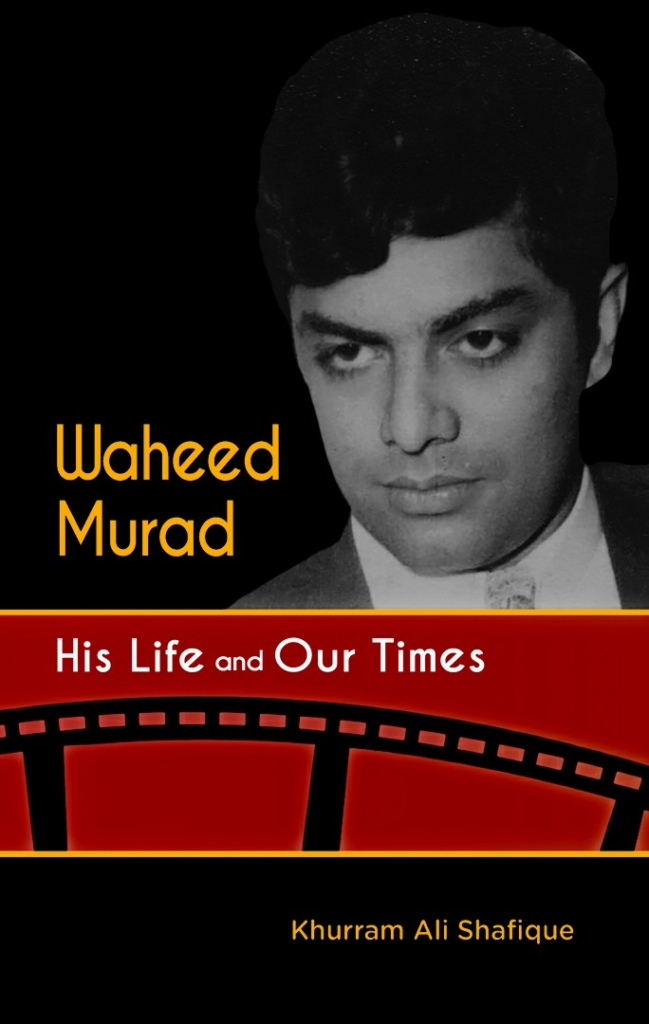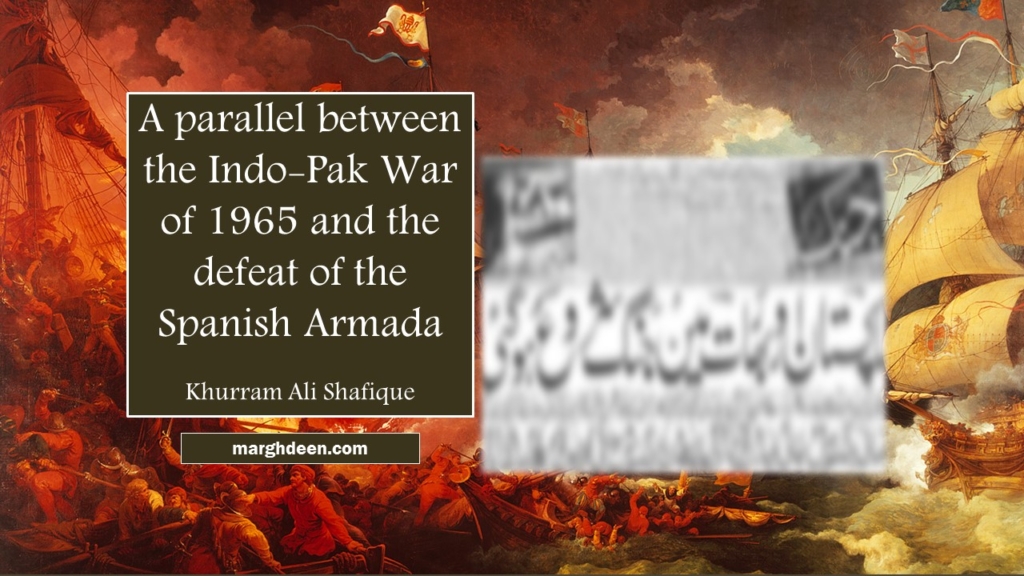 On the morning of September 6, 1965, the people of Pakistan (including the present-day Bangladesh) learnt that their country was under attack because the Indian forces had crossed the international boundary near Lahore. For the next seventeen days, the media kept informing the nation that heavy losses were being inflicted on the enemy. When the ceasefire ocurred, the people in Pakistan generally believed that they had won the war.
On the morning of September 6, 1965, the people of Pakistan (including the present-day Bangladesh) learnt that their country was under attack because the Indian forces had crossed the international boundary near Lahore. For the next seventeen days, the media kept informing the nation that heavy losses were being inflicted on the enemy. When the ceasefire ocurred, the people in Pakistan generally believed that they had won the war.
This was the simple version that was believed by most of the people in Pakistan at least until the late 1980s. Even in the bestselling political memoir of the senior bureaucrat Qudratullah Shahab, published in Urdu in the mid-1980s, the Operation Gibraltor was dismissed as a conspiracy theory. This was the code name given to an operation carried out by the Pakistani forces in the Indian occupied Kashmir in late August and early September 1965.
Perceptions began to change with the ‘second coming’ of Pakistan People’s Party in 1988. Suddenly, the liberals and the progressives came to be seen everywhere, questioning almost everything the nation had ever believed in. This included the popular Pakistani narrative about the War. Since the arrival of the Internet a few years after that and the beginning of the global era of information even later, diverse versions of the War have become available.
The question for an intelligent Pakistani now, is, which version to believe but Goethe has said very correctly that one who cannot draw upon thousands of years of history is living from hand to mouth. The Indo-Pakistan War, with all its complexities, has a direct parallel in the invasion of the Spanish Armada on England in 1588. Pakistan would be better off if it makes an attempt to see its much celebrated war in the light of this parallel.
Like the September War, the battle of Armada is also now considered to be indecisive by the historians but it is also admitted that it was a great ‘propaganda victory’ for the Tudor England, just as the September War has remained for many governments of Pakistan. The British continued to believe, for a very long time, that God had favoured the Protestant cause by giving them victory – just as many a Pakistani believe that Providence was on their side in the eventful September of 1965.
‘Propaganda victory’ is how our contemporary scholars usually describe such things but even if it be propaganda, it has to be admitted that it is indispensible for the life of a nation. Britain was a small island at the far end of Europe but gradually developed the will, imagination and magnanimity to rule the world and this development started, very certainly, with its perceived ‘victory’ over the Armada. We cannot be sure that without this just pride, the British would ever have developed the courage to build an empire on which the sun would never set (and the pride they took in their presumed victory was ‘just’ because the victory had been gained in a defensive war).
Pakistan is a bigger country than Britain, but in comparison to the vast territory of Asia it is just as small as Britain is in comparison to the petite continent of Europe. Just like Britain of the past, Pakistan of today also carries a dream of world empire in its soul but of course, an empire of a very different kind than the one created by the British colonialism. It is an empire of love – or the ‘republic of Rumi’ as I have dared call it in my work by that title.
Today when collateral damage is fast becoming the chosen strategy of states and violence a norm rather than an abnormality, the world definitely needs a ‘Superpower’ of Love. Pakistan might be just the country that can fulfill this role since this is the land that spread the message of Buddha in the ancient times and the message of the Sufis in the more recent period. To rise as the embodiment of such a message in a dark age like the present one requires extraordinary self-esteem, and this is something for which Pakistan can draw upon its collective memories of the September War and the related positive feelings that have now become deeply embedded in its consciousness. This, in fact, is a major theme in my book Waheed Murad: His Life and Our Times (2015).
Somebody might question this by saying that war and love do not go together (except in a very well-known and much abused proverb). Such an argument might appeal to altruistic minds but we need not forget that only a hundred years ago, the world was talking about the First World War as a war to end all war, victory in which would lead to perpetual peace. Mary Parker Follett wrote quite aptly in The New State in 1918, “Much of the peace propaganda urges us to choose peace rather than war. But the decision between ‘war’ or ‘peace’ never lies within our power. These are mere words to gather up in convenient form of expression an enormous amount that is underneath. All sorts of interests compete, all sorts of ideas compete or join: if they can join, we have peace; if they must compete, we have war. But war or peace is merely an outcome of the process; peace or war has come, by other decisions, long before the question of peace or war ever arises.”
On September 6 this year, as Pakistan celebrates the Defence Day, let’s pray for the souls of those who laid down their lives defending their country and let’s hope that their sacrifices would lead to the emergence of an empire of love, which the world very much needs.

Khurram shb,
Do you believe Pakistan is destined for something great? Will it really become the superpower of love, unlike the current state of its affairs?
This rise to power has been preached by Sufis (https://www.youtube.com/watch?v=IObP8WhquZg) , and people like Mumtaz Mufti, Qudrutullah Shahab and others have predicted the same. A similar prediction is attributed to Imam Bari in Islamabad. Has your research led to the same conclusion?
I’ve tried to establish in my book Waheed Murad: His Life and Our Times the premise on which this question can be answered. I cannot say whether the conclusion I’m presenting is the same as that presented by the personalities you have mentioned. That comparison is something I’d leave for the readers to do on their own.
What a eloquent comparison and yet aptly distuinguish thorough rumis empire,
SubhanAllah
Pakistan: the republic of Rumi; the empire of love! Thanks! It’s a beautiful piece of writing, indeed.